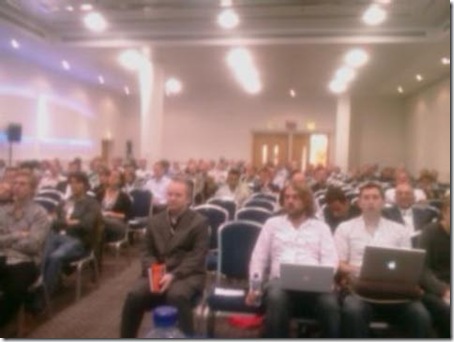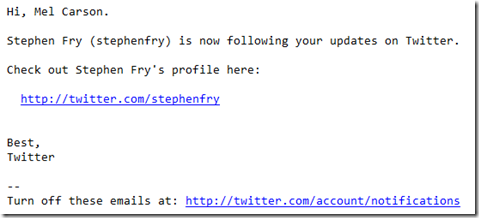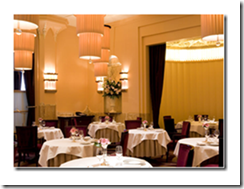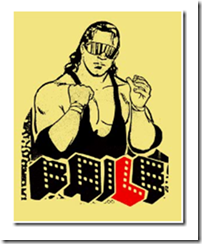
What’s The Secret?
Let’s face it, presenting in public isn’t easy! Some say people’s fear of public speaking comes second only to their fear of death – so what’s the problem?
Well to some people it comes naturally. They seem to swan in, make people laugh, get their point across, inspire and get rave reviews.
People who are not so confident are immediately plunged in a quagmire of anxiety wondering how on earth they can compete. They fear the exposure and they are frightened of failure.
Well here’s the secret!
Every one of those great speakers rehearses! They think long and hard about what they are going to say and HOW they are going to say it.
They have TECHNIQUE!
I’ve now spoken at well over a hundred conferences, pitches, summits and events. I’ve always been determined to make it look easy and natural, because that way you put the audience at ease. If they are confident in your ability to guide them through your agenda, they can learn and absorb more deeply.
But making it look easy comes at a price. The cost is time, effort and practice!
How many times have you seen presenters who mumble, don’t seem to be aware of what the next slide is going to be, apologise all the time, riddle their PowerPoint with text, turn up late or simply look all at sea?
Here are some tips to help turn you into a wizard public speaker:
Timing – Try and Go First 
Try and influence whoever has asked you to speak to let you go on as early in the day as possible. We humans only have a certain attention span and it can wane by the afternoon. If it’s a conference or you’re on a panel with other speakers, going first gives you the opportunity to set the scene and get your thoughts and ideas out before anyone else does.
Very often content will duplicate, so you want to appear to have been the first to have thought about it. Also it helps your brand as subsequent speakers will almost always refer back to you when they speak if they make similar points.
Hearing someone from the competition saying “Just to back up what Mel was saying earlier……” is a beautiful noise! You can’t buy that kind of PR…..unless of course they disagree with you!
The caveat to going on early is if it’s a conference run over a couple of days, you might not want to kick off the second or third day as your audience may be listening to you through an alcoholic, bleary haze garnered from the previous nights partying. Most people will have recovered by 11am though in order to hang on your every word! 🙂
Be Prepared – Get There Early
Never assume the technology will work! I once woke up at 5am before a live demo keynote, panicking that the venue wouldn’t be able to cope with my requirements, even though I’d emailed them in a fortnight before.
Sure enough internet access at the hotel was down, but luckily I’d started writing a back-up presentation at 5.05am that morning.
Get to the venue early, check out the space, meet the sound guy and tap through the presentation on the laptop to make sure there haven’t been any issues with compatibility.
If you turn up late you’ll look unprofessional, the audience will need a lot more convincing and the conference organiser will be looking for an alternative speaker for next year!
The Hook – Your Opening Line
 If you rehearse nothing else, make sure you know exactly how you’re going to start your presentation. Thank your introducer, thank the audience for being there and tell a story or a joke relevant to the subject you’re about to speak about. It might be about your journey to the conference centre, or an anecdote from the welcome cocktail party the night before.
If you rehearse nothing else, make sure you know exactly how you’re going to start your presentation. Thank your introducer, thank the audience for being there and tell a story or a joke relevant to the subject you’re about to speak about. It might be about your journey to the conference centre, or an anecdote from the welcome cocktail party the night before.
You need a hook to draw people in and want to listen to you. Laughter is a great tension reliever and if you hit the spot your confidence will be at the right level to keep you going through your material.
On no account make any excuses! Delegates have not spent £1000s to hear you bang on about your cold or sore throat. They will be able to hear that you’re not well and will hold you in higher regard if you soldier on and get to the end with no fuss and bother.
If it’s the first time you’ve done the presentation don’t tell them that either. Let them hear it from someone else. They don’t need to feel they’re being practised on!
Be Relevant – Tailor Your Material
Make sure your speech means something to the audience. There’s nothing worse than hearing a speaker jabber on with little or no knowledge or understanding of who he’s talking to or where he is. Make it relevant. Call up the organiser and get filled in on the “local colour!” What are the issues the delegates want addressed? Are there any local considerations? What would they like to hear?
Projection – SPEAK UP!
If you mumble – forget it! You might as well be at the back of the room. If your delivery is loud, confident and enunciated you’ll differentiate yourself from everyone else. Don’t shout and be obnoxious obviously, but be clear and audible so the listeners don’t have to strain to hear you.
Your Deck – Making Power Points
The PowerPoint deck you use should be light on text and large on imagery. Your adoring public have come to see and hear you speak. They do NOT want to read paragraph after paragraph of text off a screen. If they have to read loads of words they’re not listening to you. They’ll get irritated and give up adoring you pretty sharpish. Your audience don’t want to work too hard either. If they like you, they’ll come up after and hand you their  business card or sign up to your blog or newsletter. Promise to post a more detailed presentation somewhere or record and distribute a 10 minute podcast of the points you were trying to make.
business card or sign up to your blog or newsletter. Promise to post a more detailed presentation somewhere or record and distribute a 10 minute podcast of the points you were trying to make.
The “So What?” Factor
Make sure people don’t walk away from your presentation saying “so what?”
You want them to have some “take away” points to think about on the way home. What have you told them that they didn’t already know? What have you told them that they now want to tell other people? What have they learned from you that they can begin to implement in their own lives or businesses?
The End
Make sure your talk builds to a crescendo or a natural ending. Too many presentations end abruptly, very often surprising the presenter themselves! You want those listening to remember your talk like a story with an intriguing beginning, a meaty middle and an actionable end.
Don’t take the wind out of their mental sails by shutting down shop just when it was getting interesting. Warn them you’re starting to wrap up. If their attention has started to drift, you’ll reign them back in to listen to your most important, final points.
Lastly – Enjoy It!
You’ve been asked to speak because someone thinks you’re good at something and have something interesting to say – that’s to be celebrated.
If you look like you’re enjoying yourself then the chances are the audience will enjoy your presentation with you! 🙂







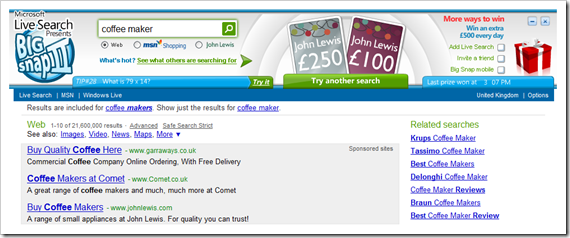


 If you rehearse nothing else, make sure you know exactly how you’re going to start your presentation. Thank your introducer, thank the audience for being there and tell a story or a joke relevant to the subject you’re about to speak about. It might be about your journey to the conference centre, or an anecdote from the welcome cocktail party the night before.
If you rehearse nothing else, make sure you know exactly how you’re going to start your presentation. Thank your introducer, thank the audience for being there and tell a story or a joke relevant to the subject you’re about to speak about. It might be about your journey to the conference centre, or an anecdote from the welcome cocktail party the night before.
